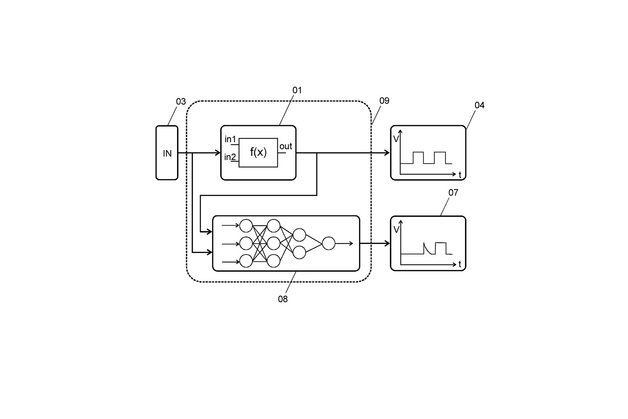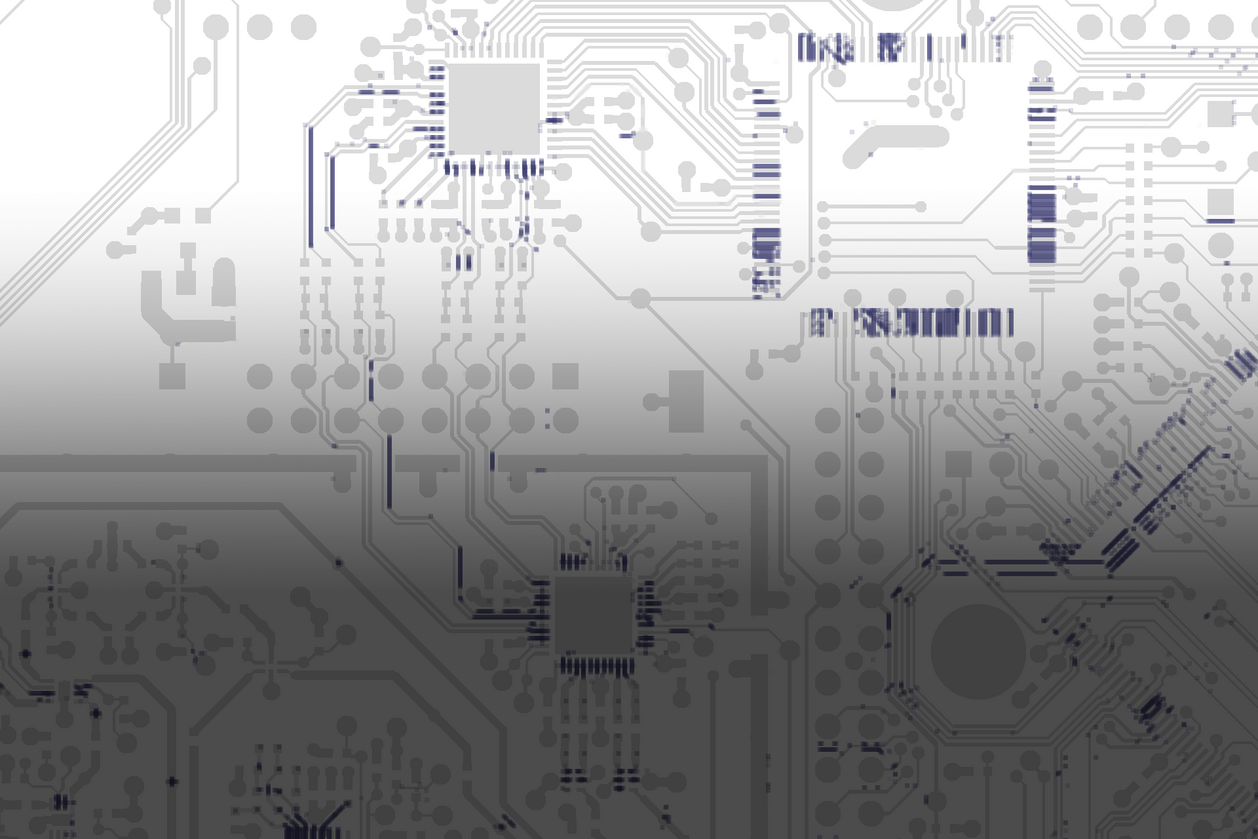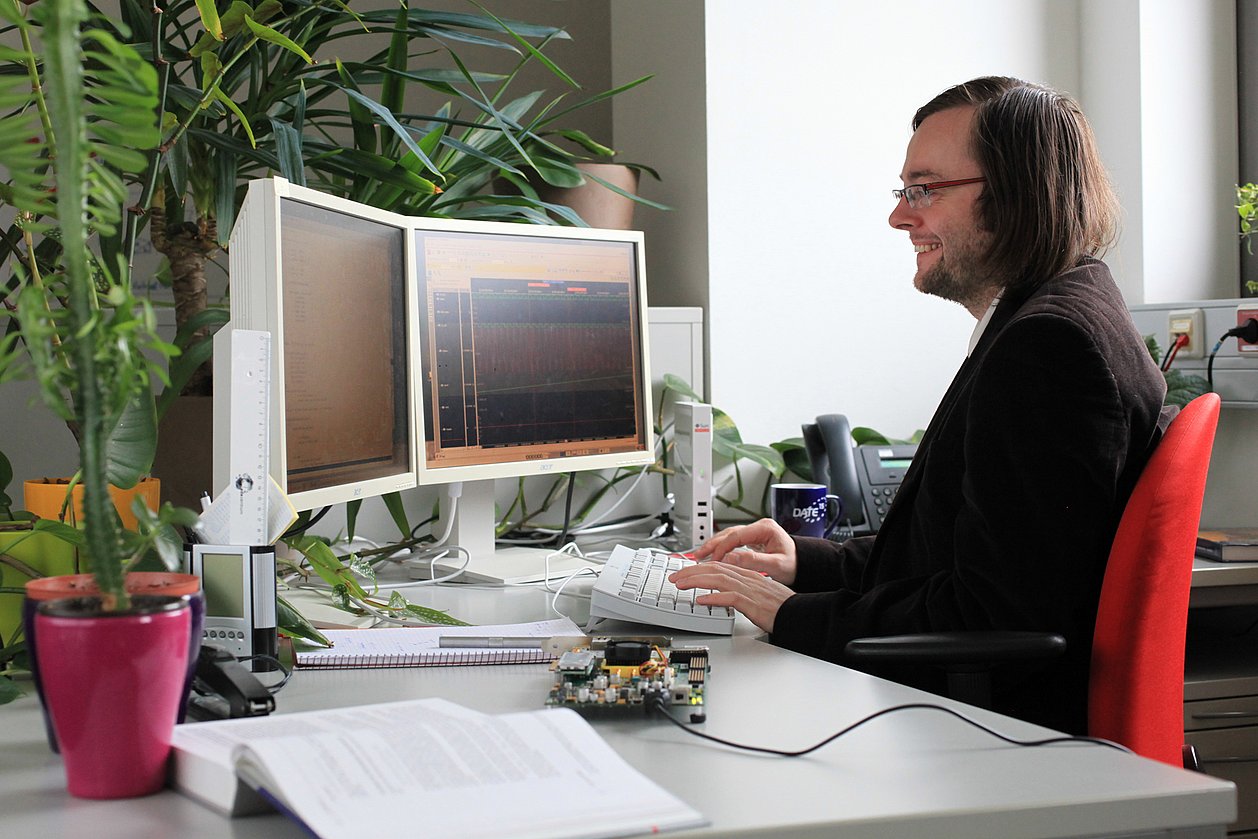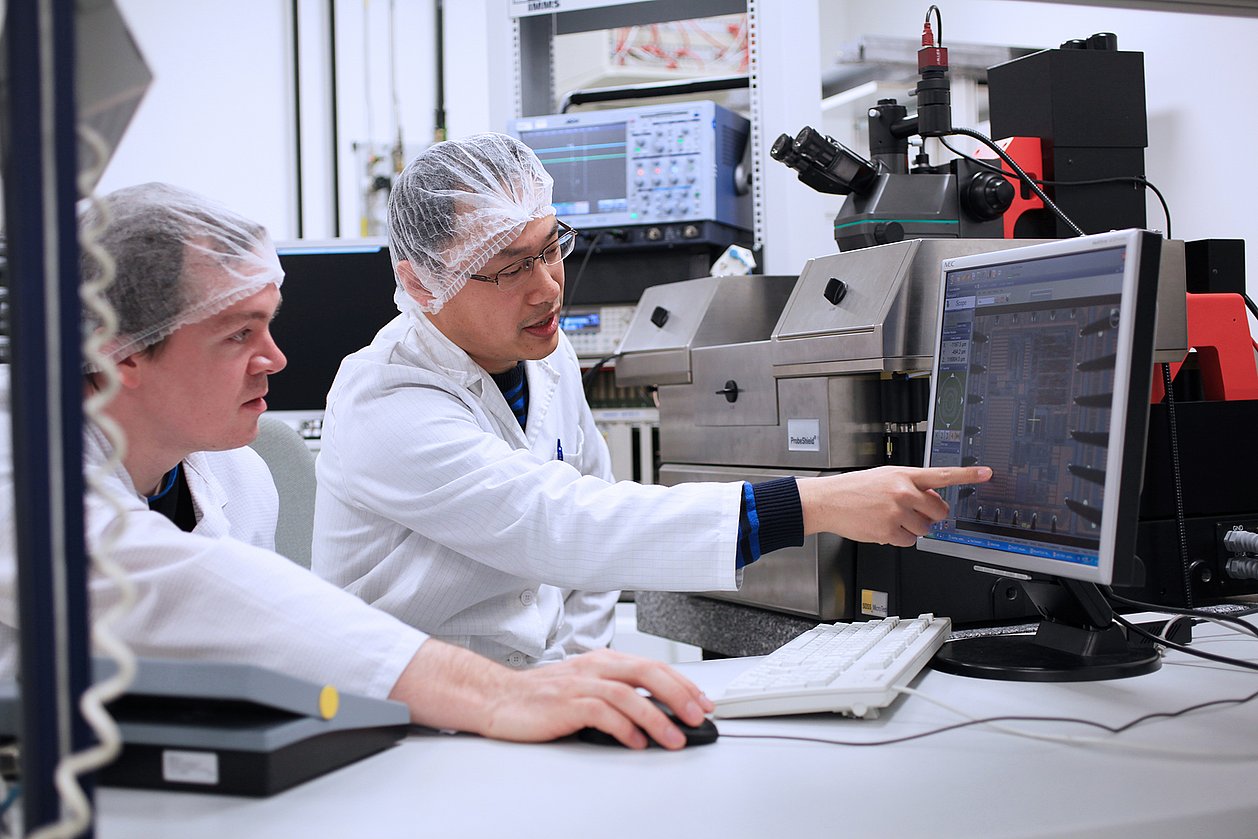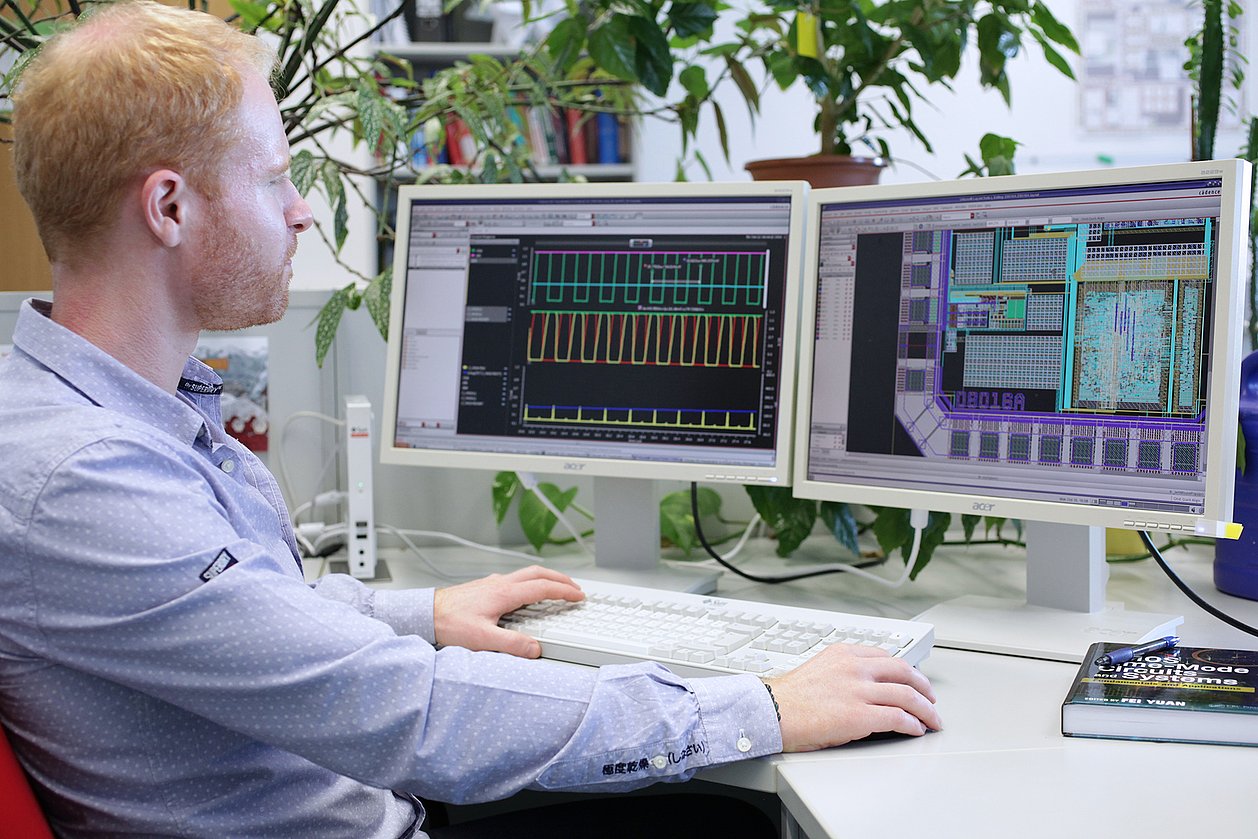Dr.-Ing. Georg Gläser
„All the knowledge I am acquiring was building up a base for my doctoral studies on analogue coverage. What a good choice I made in joining IMMS, not only academically but personally. The atmosphere in our team, the international stage on which we play and our constructive discussions constantly contribute to my personal and professional progress.”
„My first contact with IMMS was when I went to the lectures of Professors Sommer and Töpfer and Dr. Hennig while I was reading for my BSc in Electrical Engineering and Information Technology at Ilmenau University of Technology (TU). Then, in my research seminars, I was directly involved, both during the BSc and the MSc. IMMS had developed the drive for the terahertz scanner and I was working on a multiplexer design for it. The fact that the Institute focuses on a range of systems (analogue components in ASICs as well as software itself) suited me very nicely because signal processing and electromagnetics were what I had studied and I could keep the connection with circuit engineering.
I was given excellent supervision during my industrial placement on microelectronics at IMMS. I was fully involved in a research project to create a high-temperature measurement system with digital signal processing. It was thus the logical next step to write my BSc and MSc dissertations here. The BSc dissertation was a basis for my MSc work, in which I was able develop an idea I had on how to improve SystemC simulations at the transaction level and to put it into practice from beginning to end. My research results contributed directly to the GreenSense research project and were being used again in the EROLEDT project. Thanks to regular discussion with the people who later became my colleagues, and thanks to the presentation of my interim results in the IMMS Scientific Seminar, I was able to reflect theoretical principles in practical examples and obtain real-world experience. Not only that, but Professor Sommer gave me the opportunity to do some teaching at Ilmenau University of Technology, holding seminars on circuit engineering. The seminars were not only great fun to give, but brought me much new knowledge as well as general experience, all of which I can put to good use at IMMS.
As a post-graduate I have been able to remain with the Institute and am currently working in the microelectronics department where I am mainly involved with system architectures and their evaluation, which means I am continuing with development work for which I laid the foundations in my degree courses. All the knowledge I am acquiring was building up a base for my doctoral studies on analogue coverage. What a good choice I made in joining IMMS, not only academically but personally. The atmosphere in our team, the international stage on which we play and our constructive discussions constantly contribute to my personal and professional progress. I really enjoy working at IMMS and would make the same choice of job all over again.”
Related content
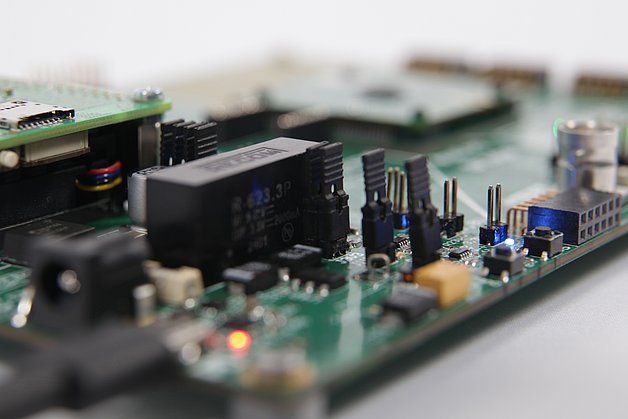
Project
VE-VIDES
Against hacker attacks: Innovative chip architectures, modelling and verification methods for trustworthy electronics
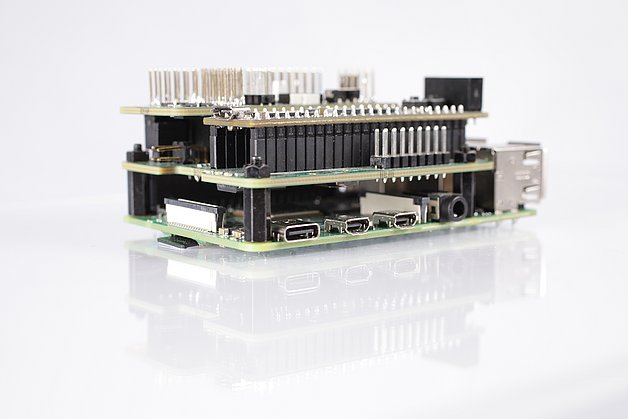
Project
VE-ARiS
IMMS developed copy protection solutions for integrated circuits to secure the know-how of partners
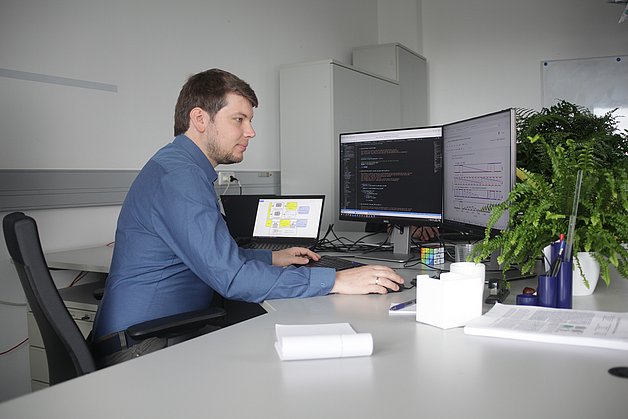
Project
KI-EDA
IMMS developed smart models and tes methods for the design of sensor and control chips for I4.0 applications
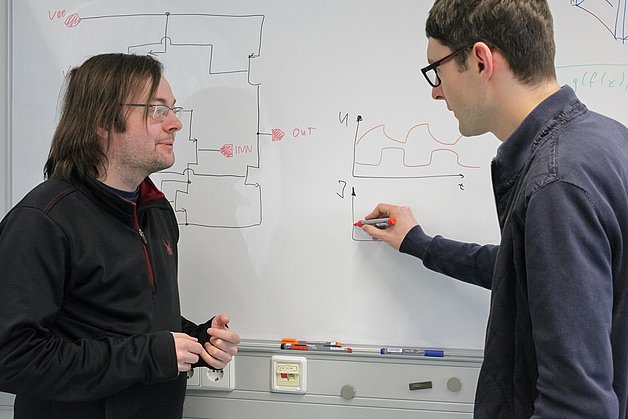
Project
IntelligEnt
The IMMS researched assistance systems for chip designers: Machine Learning improves design and test methods for integrated analogue/mixed-signal systems.
Trust is Good, Monitoring is Better: FPGA- & TEE-Based Monitoring for Malware-Detection
Friederike Bruns1. Georg Gläser2. Florian Kögler2. Jonas Lienke2. Nithin R. Nanjundaswamy3. Gregor Nitsche3. Behnam R. Perjikolaei4. Jörg Walter4.13th IMA International Conference on Modelling in Industrial Maintenance and Reliability MIMAR2025, July 8-10, 2025, Université de Lorraine, France, DOI: doi.org/10.19124/ima.2025.01.25
1Carl von Ossietzky Universität Oldenburg, Oldenburg, Germany. 2IMMS Institut für Mikroelektronik- und Mechatronik-Systeme gemeinnützige GmbH, Ehrenbergstraße 27, 98693 Ilmenau, Germany. 3DLR Institut für Systems Engineering, Oldenburg, Germany. 4OFFIS e.V. Institut für Informatik, Oldenburg, Germany.High-Sensitive Demodulator with Built-in Negative Offset Comparator for Passive UHF RFID Tags
Rohit Kesharwani1. Andre Jäger1. Martin Grabmann. Georg Gläser. Eric Schäfer1.IEEE RFID-TA 2024, Forum for advancing RFID technology and practice, Daytona Beach, FL, USA, December 18–20, 2024
1IMMS Institut für Mikroelektronik- und Mechatronik-Systeme gemeinnützige GmbH, Ehrenbergstraße 27, 98693 Ilmenau, Germany.High-Sensitive Demodulator with Built-in Negative Offset Comparator for Passive UHF RFID Tags
Rohit Kesharwani1. Andre Jäger1. Martin Grabmann. Georg Gläser. Eric Schäfer1.2024 IEEE International Conference on RFID Technology and Applications (RFID-TA), Daytona Beach, FL, USA, 2024, pp. 109-112, DOI: doi.org/10.1109/RFID-TA64374.2024.10965142
1IMMS Institut für Mikroelektronik- und Mechatronik-Systeme gemeinnützige GmbH, Ehrenbergstraße 27, 98693 Ilmenau, Germany.Clock Gate Insertion with a Yosys-based Netlist Modification Tool
Manuel Jirsak1. Adrian Pitterling1. Jonas Lienke1. Georg Gläser1.FPGA Ignite Summer School, 5. - 9. August 2024, Heidelberg, Germany
1IMMS Institut für Mikroelektronik- und Mechatronik-Systeme gemeinnützige GmbH, Ehrenbergstraße 27, 98693 Ilmenau, Germany.
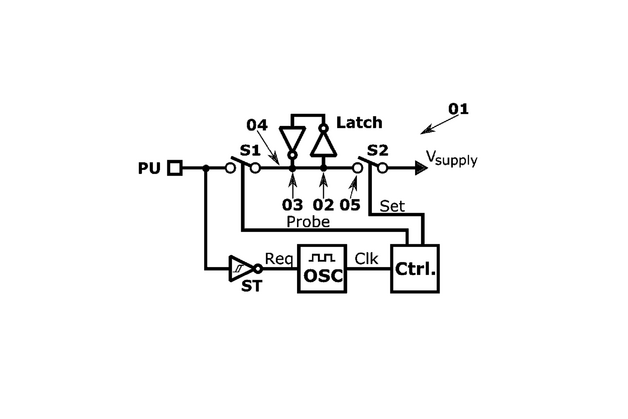
Patent
DE 10 2016 119 927
Circuit arrangement for providing the charging energy for a level change on a signal bus, calibration method and signal transmission system

Patent
DE 10 2016 113 283
Method for determining a resistive deflection of a Wheatstone bridge in a high temperature environment


